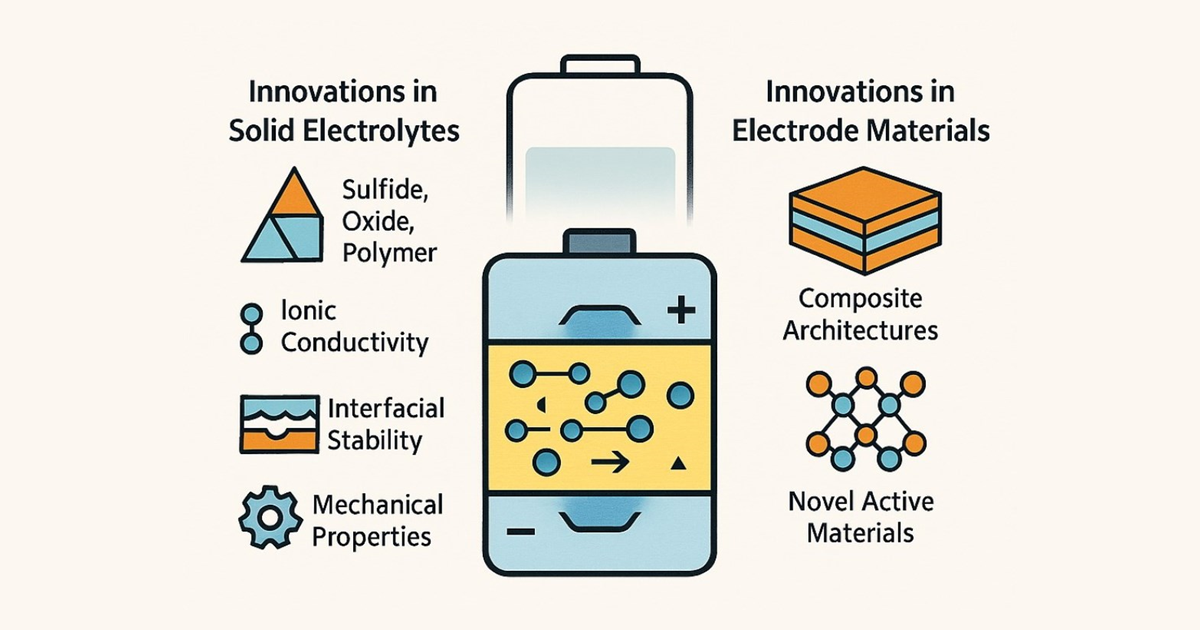Research Progress on Electrolytes and Electrode Materials for Solid-State Batteries
A special issue of Materials (ISSN 1996-1944). This special issue belongs to the section "Energy Materials".
Deadline for manuscript submissions: 20 January 2026 | Viewed by 831

Special Issue Editor
Interests: lithium-ion battery; non-lithium-ion battery; solid glassy electrolytes; ceramic materials; solid-state battery; aqueous rechargeable battery; lithium metal anode; surface modification of electrodes
Special Issues, Collections and Topics in MDPI journals
Special Issue Information
Dear Colleagues,
Solid-state batteries (SSBs) represent a transformative advancement in energy storage, offering enhanced safety, higher energy density, and longer cycle life compared to conventional lithium-ion batteries (LIBs). This Special Issue focuses on the latest research developments in electrolytes and electrode materials, which are critical to unlocking the full potential of SSBs. It highlights innovations in solid electrolytes (SEs)—including sulfide, oxide, and polymer-based systems—with emphasis on ionic conductivity, interfacial stability, and mechanical properties. Additionally, the issue explores breakthroughs in electrode design, such as composite architectures and novel active materials, which address challenges in compatibility and performance. By bringing together cutting-edge experimental and theoretical studies, this collection aims to provide a comprehensive overview of the current state of progress and future directions in the field. We invite the submission of original research and review articles on a wide range of topics, including the synthesis and characterization of solid electrolytes, interface engineering, advanced electrode materials, modeling and simulation, and practical applications of solid-state battery systems. The insights presented here are expected to accelerate the development of next-generation solid-state battery technologies for applications ranging from portable electronics to electric vehicles and grid storage.
Dr. Artur Tron
Guest Editor
Manuscript Submission Information
Manuscripts should be submitted online at www.mdpi.com by registering and logging in to this website. Once you are registered, click here to go to the submission form. Manuscripts can be submitted until the deadline. All submissions that pass pre-check are peer-reviewed. Accepted papers will be published continuously in the journal (as soon as accepted) and will be listed together on the special issue website. Research articles, review articles as well as short communications are invited. For planned papers, a title and short abstract (about 250 words) can be sent to the Editorial Office for assessment.
Submitted manuscripts should not have been published previously, nor be under consideration for publication elsewhere (except conference proceedings papers). All manuscripts are thoroughly refereed through a single-blind peer-review process. A guide for authors and other relevant information for submission of manuscripts is available on the Instructions for Authors page. Materials is an international peer-reviewed open access semimonthly journal published by MDPI.
Please visit the Instructions for Authors page before submitting a manuscript. The Article Processing Charge (APC) for publication in this open access journal is 2600 CHF (Swiss Francs). Submitted papers should be well formatted and use good English. Authors may use MDPI's English editing service prior to publication or during author revisions.
Keywords
- solid-state batteries
- solid electrolytes
- electrode materials
- interface engineering
- ionic conductivity
- composite electrodes
- battery modeling and simulation
- next-generation batteries
Benefits of Publishing in a Special Issue
- Ease of navigation: Grouping papers by topic helps scholars navigate broad scope journals more efficiently.
- Greater discoverability: Special Issues support the reach and impact of scientific research. Articles in Special Issues are more discoverable and cited more frequently.
- Expansion of research network: Special Issues facilitate connections among authors, fostering scientific collaborations.
- External promotion: Articles in Special Issues are often promoted through the journal's social media, increasing their visibility.
- Reprint: MDPI Books provides the opportunity to republish successful Special Issues in book format, both online and in print.
Further information on MDPI's Special Issue policies can be found here.






